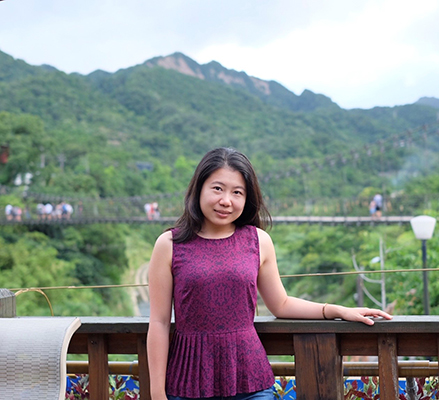Student Spotlight: Linda Yihe Zeng
 Linda Yihe Zeng, Medicine Class of 2020, was drawn to the Schulich School of Medicine & Dentistry because of the efforts and headways the School is making to create a diverse community on campus as it reflects the community it serves. She also was attracted to the small class size and more one-on-one interactions with senior staff at the Schulich Medicine — Windsor Campus.
Linda Yihe Zeng, Medicine Class of 2020, was drawn to the Schulich School of Medicine & Dentistry because of the efforts and headways the School is making to create a diverse community on campus as it reflects the community it serves. She also was attracted to the small class size and more one-on-one interactions with senior staff at the Schulich Medicine — Windsor Campus.
“The camaraderie between students at Schulich Medicine is unparalleled to any I experienced at other schools,” she said.
Why did you chose to pursue medicine?
I have always been fascinated with physiology, biology, anatomy and pathology. I chose to pursue medicine because it is the career path that allows me to study my areas of interest continuously and to make direct positive changes to individuals and my community.
What was your greatest achievement?
In the previous academic year, as the
What activities/initiatives are you involved with that help bring balance in your life?
As the Social Coordinator for the Medicine Class of 2020 Class, I organize and attend many social events. My position pushes me to take time for myself and maintain a healthy social life. Seeing my friends and fellow classmates outside of school and the clinical setting helps me de-stress and stay connected with my class.
Who inspires you?
Dr. Danielle Martin has inspired me since I saw her testimony in front of a U.S. Senate committee. The committee was studying the health care systems in other countries. Dr. Martin was poised yet passionate, assertive but polite and well-read but willing to admit the limitations in her knowledge. I was filled with pride by the way Dr. Martin represented Canada and physicians. Since I saw her testimony, I have developed an interest in health care issues in Canada and other health care systems around the world.
In pre-clerkship, I collaborated with other students to advocate that Naloxone kits be made available in downtown Windsor by speaking to local council members.
I chose to complete an international exchange during the summer after my pre-clerkship year to learn about other health care systems. I learned a lot from observing Taiwan’s health care system and conversing with other exchange students.
What was your greatest challenge?
Sometimes, my greatest challenge is self-doubt. After entering medical school, surrounded by brilliant classmates, I found that my insecurity reappeared. I learned that imposter syndrome is very common. Speaking to other students and learning about imposter syndrome through lectures helped me. The positive but constructive criticism from staff and fellow students always makes me feel validated. Having a great support system outside of medical school helps to keep my confidence up.
What challenges have you encountered in medical school?
The hardest part of practising medicine for me is dealing with the social and economic constraints of the patient and the health care system. Sometimes it is impossible to provide the patient with the optimal standard of care. There are times when patients cannot afford the recommended medication. Other times, they miss
What have you learned about yourself and others through your time at Schulich Medicine?
I have learned about the importance of empathy. Empathy is essential in physician-patient relationships but also between colleagues. From my observation, when an issue arises in a
What role do you believe university students – specifically those in health sciences should play in advocacy/activism in the community?
In my opinion, a crucial part of any health








